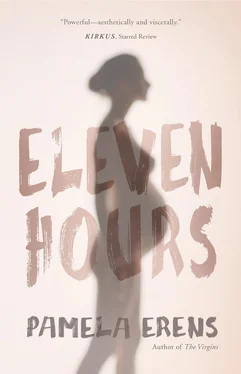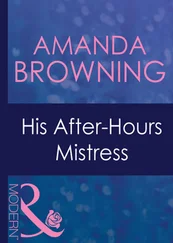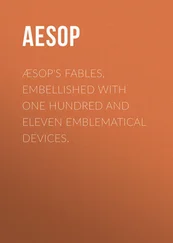Pamela Erens - Eleven Hours
Здесь есть возможность читать онлайн «Pamela Erens - Eleven Hours» весь текст электронной книги совершенно бесплатно (целиком полную версию без сокращений). В некоторых случаях можно слушать аудио, скачать через торрент в формате fb2 и присутствует краткое содержание. Год выпуска: 2016, Издательство: Tin House, Жанр: Современная проза, на английском языке. Описание произведения, (предисловие) а так же отзывы посетителей доступны на портале библиотеки ЛибКат.
- Название:Eleven Hours
- Автор:
- Издательство:Tin House
- Жанр:
- Год:2016
- ISBN:нет данных
- Рейтинг книги:4 / 5. Голосов: 1
-
Избранное:Добавить в избранное
- Отзывы:
-
Ваша оценка:
- 80
- 1
- 2
- 3
- 4
- 5
Eleven Hours: краткое содержание, описание и аннотация
Предлагаем к чтению аннотацию, описание, краткое содержание или предисловие (зависит от того, что написал сам автор книги «Eleven Hours»). Если вы не нашли необходимую информацию о книге — напишите в комментариях, мы постараемся отыскать её.
Eleven Hours
Eleven Hours — читать онлайн бесплатно полную книгу (весь текст) целиком
Ниже представлен текст книги, разбитый по страницам. Система сохранения места последней прочитанной страницы, позволяет с удобством читать онлайн бесплатно книгу «Eleven Hours», без необходимости каждый раз заново искать на чём Вы остановились. Поставьте закладку, и сможете в любой момент перейти на страницу, на которой закончили чтение.
Интервал:
Закладка:
Imagine having spoken of any of this to Diana or Marjorie. Lore would have seen, behind their careful words, how appalled they were: could she really have been so clueless? But it had been exquisite: the touch of her lover, the touch of her friend. Before this her heart and her hands had been devoted to the body of a sick and dying woman, with its bruises and sores and bad smells. She is proud of having cradled and eased her mother until the end. But it had left her so very hungry.
She had colluded, in short, and all Asa was asking was that she continue to collude with eyes open. It struck her that Julia might have urged Asa to make his confession. Perhaps she had been growing bored of their stealth affair and was looking for a new drama. “Do this for me, for us,” she might have said, daring him.
And why not? Wouldn’t it be natural, this next step? But Lore recoiled. Not, she realized, because of any great moral objection. She could envision the new arrangement perfectly well. But she was too proud. She was, quite obviously, the variable in the equation. One day Julia would tire again and move to eject her; her X would be replaced by someone else’s Y or Z. Asa would protest, perhaps, but then he would agree. Oh, he would agree. But even imagining this injury was not the worst. The worst was to acknowledge how greedy she had been, how like Julia she actually was. One lover had not been enough for her. The only difference between her and Julia was that she wasn’t clever enough to have orchestrated the setup; she’d had to be swept into it, led.
“Go to her,” Lore said. She was frightfully calm, except for the urgent need to have Asa leave the apartment, vanish from her sight. She was silently nearly hysterical in her desire to push him out the door. She wished there were more locks to lock: a hundred locks to lock behind him. As soon as she was alone she fell into a deep sleep, and in the morning she went to work as usual, thinking and feeling as little as possible. On her return she set about methodically destroying every memento of their lives together: photos from parties and evenings at home, the crafts-fair art, books Asa or Julia had introduced her to, any clothing bought or worn in their presence, even refrigerator clippings and scribbles on notepads. She left behind the plates and glasses, the kitchen tools. A few of her oldest items of clothing and her toiletries were all she threw into her suitcase. She was leaving with no more than she had brought with her to the city something over four years ago. In between had been a dream so vivid and compelling it had seemed real, but it was no surprise to wake up and find that she was alone again. She knew how to live lightly — she had always lived lightly. Her mother had lived lightly. People like them never accumulated much.
Eleven minutes. The smell of rubbing alcohol, new gauze. Lore looks up. A hallucination of sorts, for nothing has been opened, nothing moved; Franckline is sitting patiently at the computer desk, filling out paperwork.
No, people like them never accumulated much, only culled a little corner of the world to call their own, then moved on when trouble pushed them aside. Greenwich Village, Lockport, Hobbes Corners — more than one house there, but in each Lore’s mother bent over the lilies in the stony yard. She sat at the sewing machine, sewing Lore’s skirts for school. Two females, doing what females do: getting by. Had Lore missed having a father? friends had sometimes asked. Julia had asked. Lore always said no. As a child she had not been quite sure what fathers were for. Money, one would think. But her friends with fathers at home seemed to live not very differently than she and her mother did. Possibly worse — men tended to spend on hunting and bowling outings, and drink.
When Lore’s mother was dying and doped up on morphine, she spoke about being a dancer in New York City. Some sort of troupe that contained girlfriends named Celeste and Patty. Bright-red skirts and castanets. There was no way to know if this had really happened, or if it was a fantasy brought on by the drugs. Her mother spoke slurrily of picking blueberries by a country lake, of finding at a flea market an embroidered blouse threaded with ribbons. “The place was so crowded and dirty,” she said. “But I found what I wanted.”
How naive Lore had been, despite being the daughter of a father no one spoke of, despite the strange, incomplete conversations at her mother’s deathbed; how again and again she was caught up short by the discovery that other people had stories they didn’t tell, or told stories that weren’t entirely true. How mostly you got odd chunks torn from the whole, impossible truly to understand in their damaged form. She glances at Franckline. Who is she, what are her stories, what does she tell and not tell? Once upon a time, Franckline arrived here from another country: there, surely, is at least one story, a story of ambition or love or flight. Is she married? (Lore quickly scans Franckline’s hand. Yes.) Does she have children? Are they sweet-tempered, mischievous, shy, gregarious? Where does she live, what objects fill her home? Has she ever been betrayed by someone?
Thirteen minutes.
The girl watches the clock, and Franckline can sense her spirits plummeting. She has lost track of the monitor, and Franckline doesn’t remind her. Given the slowdown in the contractions, she wants to hear the steady thumping and be able to read the regular spikes and decelerations on the printout. In the meantime, what to do for Lore? Franckline might see if she could borrow a book from one of the nurses for her, or a magazine. But she is sure that Lore would wave them away. Perhaps if Franckline offered to read to her. A few of the patients like to be read to by friends or family members. Franckline listens in, trying to expand her notion of what her adopted language might be applied to. These are usually poems that Franckline finds obscure but pleasantly rhythmic, or Bible passages that she knows better in French but enjoys hearing transmuted into the chunky mouthfuls that make up English. Last week a woman read to her sister from a novel about Russians at a great formal dance, princesses and dukes and so on. The two of them got into a lively discussion about the attractiveness of two different types of females, the girlish and the womanly. The pregnant woman said most men preferred the girlish. Her sister said they just pretended to, but really wanted the womanly. Then the patient sighed and asked her sister to put the book away and said she just wished the goddamn baby would come.
If — when — Franckline has this baby, she will not have her sister by her side. Gizelle, the only of her siblings she nearly stayed in Ayiti for. And, had she done so, would the ice in her mother’s heart have one day melted, would her aunties and cousins again have felt like the very thumbs and fingers of her hands? But she had been too young to understand about time — time seemed then so large and heavy, a boulder that would crush her. She could not stay and be ground under. She had no idea that time could ever move swiftly, as it does now, that people and their feelings might eventually change. Manman died ten years ago. Franckline had not been there, had not even known until weeks later, when Gizelle tracked her down. Gizelle will know when this child is born. There are neighbors with cell phones now; the country is not as far away as it once was.
The child might mean a return to Basin Rouge, her village, to see Gizelle and her brother and her other sisters after all these years. She and Bernard have been to Port-au-Prince twice, to visit his mother and other relatives, but Franckline refused to travel to her home village. Her sister Athalie had written: Papa says you killed Manman. You, the oldest, abandoned us . But perhaps if she brought her father a grandchild to hold, he might forgive her. And Bernard, with his respectful ways, and his kindnesses, would win everyone over, even the brothers-in-law. They would not be able to help being impressed by his new clothes, his education, the life he and Franckline are living in New York City, with an apartment all to themselves on a street planted with rhododendrons and azaleas. They will bring gifts: new sneakers, deflated soccer balls, talcum powder, cologne.
Читать дальшеИнтервал:
Закладка:
Похожие книги на «Eleven Hours»
Представляем Вашему вниманию похожие книги на «Eleven Hours» списком для выбора. Мы отобрали схожую по названию и смыслу литературу в надежде предоставить читателям больше вариантов отыскать новые, интересные, ещё непрочитанные произведения.
Обсуждение, отзывы о книге «Eleven Hours» и просто собственные мнения читателей. Оставьте ваши комментарии, напишите, что Вы думаете о произведении, его смысле или главных героях. Укажите что конкретно понравилось, а что нет, и почему Вы так считаете.












